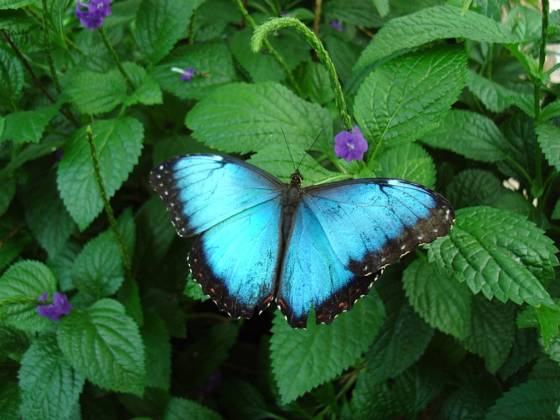Dutch wildlife population has halved in 30 years: WWF


Wildlife populations in the Netherlands have halved in the last 30 years and the government must make haste to limit its main cause: nitrogen pollution, the World Wildlife Fund warns.
A report published by the organisation, which monitors the state of the world’s plant and animal populations on a two-yearly basis, said birds, butterflies and a number of reptile species have all but disappeared from the Netherlands, particularly in open heathlands and agricultural areas.
High nitrogen pollution levels are the main cause and must be brought down ‘quickly and structurally’, the report said.
‘Our landscape is becoming monotonous and silent without us noticing. We still enjoy purple heathland and the fields are green. But who remembers the clouds of butterflies that used to inhabit the heath and the sound of birdsong everywhere? We have decimated nature so badly that our wellbeing and prosperity are under threat,’ said Kirsten Schuijt, director of the Dutch branch of the WWF.
Animal populations in wooded areas have remained stable, the report said. Areas where nitrogen compounds have been reduced to levels that do not affect the environment showed a 24% growth in animal populations, with nuthatches, wood owls and marsh tits making the most successful comeback.
The WWF said this shows the affected areas can recover, but only if farmers can be persuaded to switch to a more environmentally friendly way of practicing agriculture, and if and nature reserves are made more resilient by connecting them together.
Schuijt told NOS that the present government package of nitrogen limiting measures is ‘totally insufficient’.
‘It is time politicians decided what sort of country we want to live in. So far The Hague is only increasing polarisation by offering a platform to radical parties. But we need to do this together and not put farmers, builders and nature in separate boxes,’ she told the broadcaster.
Thank you for donating to DutchNews.nl.
We could not provide the Dutch News service, and keep it free of charge, without the generous support of our readers. Your donations allow us to report on issues you tell us matter, and provide you with a summary of the most important Dutch news each day.
Make a donation